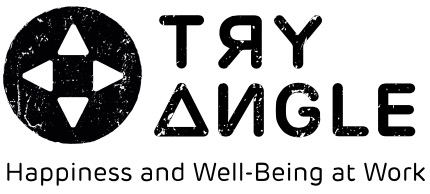An ever-growing list of countries have conducted pilot projects for a four-day work week where employees perform only 32 hours in exchange for 40 hours’ pay. Iceland, New Zealand, Japan, the UK, Australia, the US, Canada and Portugal all report impressive results. Some specific organisations like Friday Pulse and Happy have also tried it out and even switched to it permanently.
In light of the pandemic and current labour market challenges, this concept naturally fits into a whole new view of work (and life). The setup? Employees work 32 hours over 4 days each week, earning the same pay as a full time job of 5 days, and hence having more free time each week. The most striking – and perhaps at first glance illogical – conclusion? Workload and output remains the same and productivity increases drastically!
In this blog article, we’ll dive into how this works, look at the most promising results and where exactly the efficiency can be found. We also offer a critical note and the difference with the approach in the Belgian labour deal.
Impressive results
Each pilot project of course has its own parameters, so the specific figures and results differ, but we see similar positive effects in several domains, for employees, organisations and society. To provide some sort of quantification, the overview below contains a selection of figures from the pilot projects from the various countries and the helicopter view of 4 Day Week Global.
The reported benefits for individual employees are a direct effect of the extra day of ‘time off’ per week:
- Improved physical and mental well-being: 40% of employees reported less stress, 69% less burnout, 59% less negative emotions and 39% less anxiety. 45% of employees felt less fatigue and 40% had fewer sleep problems (US and Canada). Australia specifically found that 36% started moving more often and more per week (+20 min on average).
- More positive feelings about the job: More job satisfaction, motivation, better morale and more job happiness according to Japan, FridayPulse and the UK trial.
- Better work-life balance: 73% of employees were found to be more satisfied with how they could spend their time, 60% were able to find a better balance with their family and caring responsibilities and 62% confirmed that work was easier to combine with their social life and hobbies (UK).
- Improved work performance: Improved well-being and (work) happiness led to greater personal productivity through increased focus, according to Nik Marks of FridayPulse. New Zealand also reported that employees felt more challenge, engagement, power and self-esteem, and the US and Canada also reported large increases in self-reported productivity, including a 57% increase in employees’ current work ability compared to their ‘best work performance ever’.
Logically, these benefits also translate into benefits for the organisation:
- Stable to even improved productivity in Iceland, Japan and the UK.
- Higher efficiency and 35% more revenue, less employee turnover and absenteeism in the UK and also less overtime according to 4 Day Week Global report.
Not only do employees and employers benefit from this system, there are also social benefits in terms of sustainability. On the one hand, there are lower costs for e.g. electricity and printing due to lower occupancy (resp -23% and -59% according to the pilot in Japan) and reduced frequency and duration of commuting. In addition, the pilot projects also show more environmentally friendly behaviour emerging because of the bigger ‘mental’ space to make these kinds of choices (such as recycling, buying more ecological products, walking and cycling more instead of driving,…).
Surprising sources of productivity
Surely the improved performance and benefits have to come from somewhere? Simon Ursell, the managing director of one of the participating organisations in the UK put it this way: “Many people don’t realise how much time we waste at work”. In his opinion, there is a need for creativity as well as a different way of working to meet the challenge.
This setting invites companies and employees to think about how to achieve the same result with 20% less working time. The greatest efficiency gains can be found in the following areas:
- Fewer and more efficient meetings through better communication and better (agenda) preparation.
- Better time, energy and priority management, putting more effort into flow and focus time and eliminating work-related disruptors, procrastination and time wasters.
- Supporting technological tools and platforms to automate tasks and optimise human added value.
- Clear communication about goals and expectations creates more effective teamwork and workflow. The challenge of doing the same work with 1 day less per week invites more courage, openness and consultation around delegating tasks and the search for the most compatible collaboration and deployment of strengths and talents in the right place.
- More autonomy and more trust gives employees more responsibility and control over their own work schedule, something that also emerged in previous research as a solid motivation, engagement and productivity booster.
- The enhanced mental and physical well-being and better work-life balance makes employees feel more rested, resilient and energetic and thus able to work with more gusto, positivity, focus and creativity.
The four-day work week in Belgium
The Belgian government also embarked on the concept of the four-day working week in late 2022 as part of the so-called labour deal, but interpreted it slightly differently than the international 32 hours instead of 40 hours approach. Workers can ask their employers to switch to 4 working days of 9.5 hours a day, instead of the classic 8 hours a day for five days. This means they will essentially keep the same total number of working hours per week, but they simply have the choice to opt for 4 longer working days in exchange for an extra day off each week.
It does indeed give people and companies a bit more freedom to arrange their time differently, but both employers and employees do not appear to be particularly keen on this new option. According to a recent study by Acerta, 6/10 of working Belgians are currently not in favour of the four-day working week, and also according to a survey by SD Worx, only 1 in 5 of Flemish SMEs (21%) believe it can contribute greatly to attracting and retaining employees. Six months after the introduction of the full-time four-day working week, only 6% of Flemish SMEs has adopted this new form of flexibilisation.
In addition, companies fear that the shorter working week could cause administrative and organisational problems, while unions fear that the workload will only increase during the rest of the week. Several studies seem to confirm these concerns, especially considering that in Belgium’s four-day week, a working day can quickly amount up to 10 hours.
Alarmingly, there are increased health risks with long(er) working days:
- Working more than 10 hours a day is associated with a 60 per cent higher risk of cardiovascular problems.
- People who work 11 hours or more in 1 day have an increased risk of depression
Research, such as this summary and this study from the International Journal of Environmental Research and Public Health, show that long working days can lead to many health risks, increased fatigue and lower productivity. When employees are away from home for 12 hours a day (including an average commute time), could this not lead to a backlash effect where employees are exhausted and have to take the extra day simply to recover from the additional effort?
This may cause the stress and burn-out numbers to go from bad to worse and that does not sound like the win-win aimed for in flexible working models. At Tryangle, we are always looking for a positive impact and we refuse to put such additional challenges on our own team member’s plates. Could it not be an opportunity to reward that increased productivity (as proven by the four-day working week pilots with 32 hours) with full pay and see an increased level of wellbeing, commitment and sense of appreciation flow from that, on top of all the benefits of the extra day off?
Potential mismatch
Unfortunately, the Belgian government insists on the moel of 4 longer working days, something that could prove to be counterproductive. After all, like the limits to our physical capabilities, the human brain is also limited in its capacities for willpower, flow and focus during a day, after which qualitative recuperation is needed to recharge the batteries.
The changing outlook on work and the evolution of technology and society will certainly open up an exciting search for answers and creative solutions. The technological revolution, the stress and burn-out epidemic as well as the covid-19 crisis have allowed people to start thinking about what is truly important. Hence, more people feel the mismatch between the way we work and the amount of time we spend at work versus the time we get to spend with friends and family and on hobbies that energize us. The ‘real’ four-day work week has a lot of potential in this area to take a new, qualitative and sustainable path as a society.





